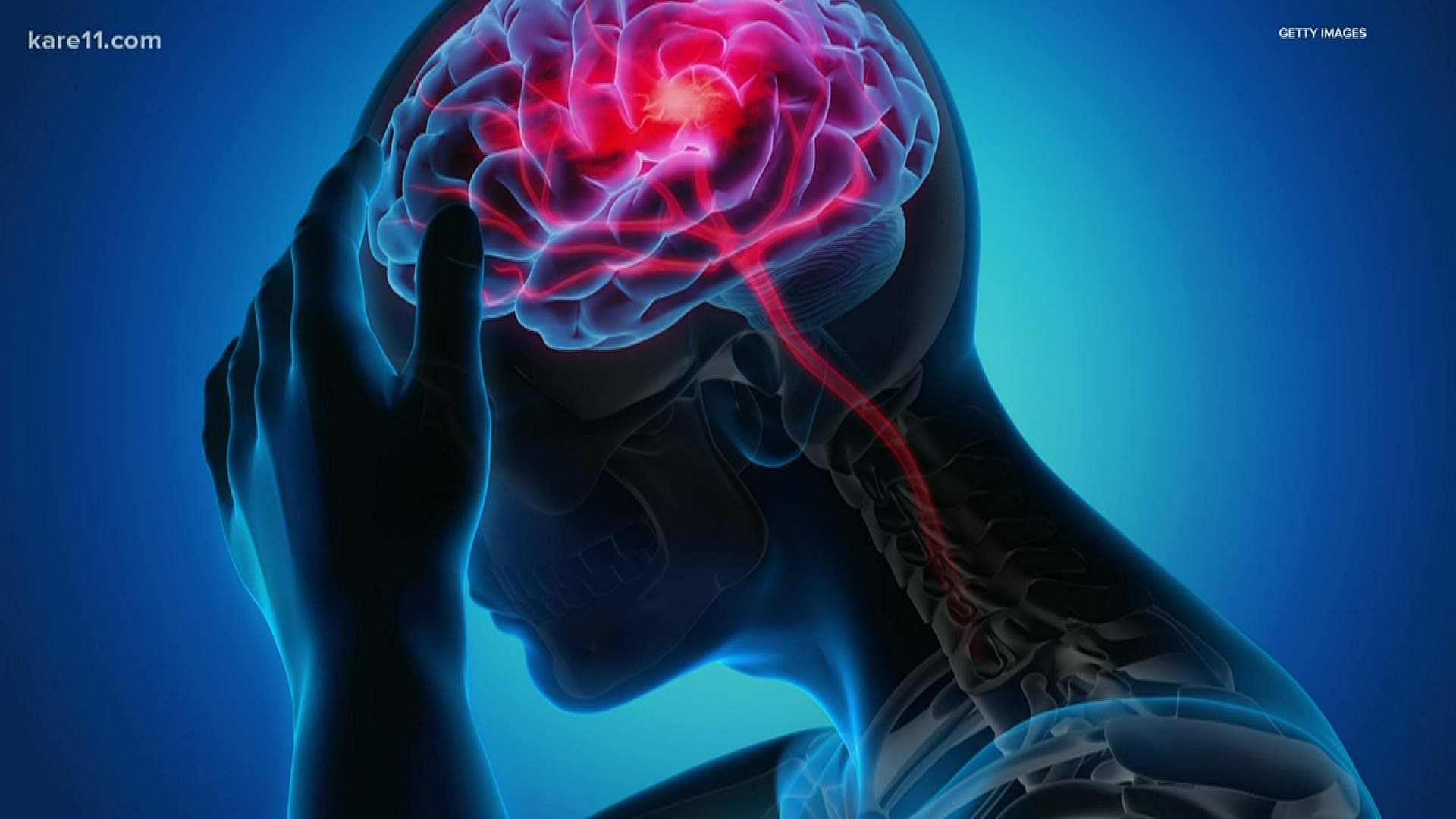ROCHESTER, Minnesota — Doctors are seeing some COVID-19 patients in their 30s and 40s who are having strokes.
Dr. Thomas Oxley, a neurosurgeon at Mount Sinai Health System in New York, told CNN that they treated five people who suffered from strokes over a two-week period. All were under the age of 50 and had either mild COVID-19 symptoms or no symptoms.
"They're disabling strokes and they're in younger patients," said Dr. Sara Hocker, a neurointensivist at Mayo Clinic in Rochester. "It is something that we're concerned about and need to learn more about."
The Washington Post reports that three large U.S. medical centers are preparing to publish data related to this but there are only a few dozen cases per location.
While the numbers aren't high, Dr. Hocker said the strokes are occurring in patients younger than what they're used to seeing.
RELATED: CDC adds 6 new COVID-19 symptoms
"They are blood clots blocking larger arteries. So larger territory, larger volume strokes which can be more disabling," Dr. Hocker said.
Dr. Hocker said they do not know why these clots are happening. They're seeing them occur both in arteries and veins.
"So that's why we're seeing strokes but also clots in the lungs and clots in the legs," Dr. Hocker said.
More research also needs to be done on why doctors are seeing these strokes happen in those under the age of 50.
"One possibility is that they're healthy enough otherwise to tolerate well the lung pathology but that the clotting—which is either a direct toxicity on the vessels from the coronavirus or potentially just a bystander—in other words, the body's response to the virus is creating a procoagulant situation where the patient wants to make clots," Dr. Hocker explained. "If that's the case, it may just be that the patient is healthy enough to tolerate the other things but then the stroke is what's getting them."
If from one minute to the next you're experiencing a sudden onset of weakness or numbness, loss of vision, facial drooping, inability to speak or understand, call 911.
Every minute counts and Dr. Hocker said it's potentially reversible if it's caught early enough.
A case study from the beginning of April out of Japan found traces of the new coronavirus in the cerebrospinal fluid of a COVID-19 patient who developed meningitis and encephalitis
"In addition to stroke symptoms, headache, nausea, vomiting, confusion, neck stiffness—that meningitis, encephalitis profile— is something else that really needs to be taken seriously and that is an urgent emergency where minutes can count," Dr. Hocker said.
Other neurological symptoms tied to COVID-19 include loss of smell or taste, as well as loss of appetite. Dr. Hocker said those seem to be more prevalent in mild COVID-19 cases.
KARE 11’s coverage of the coronavirus is rooted in Facts, not Fear. Visit kare11.com/coronavirus for comprehensive coverage, find out what you need to know about the Midwest specifically, learn more about the symptoms, and see what companies in Minnesota are hiring. Have a question? Text it to us at 763-797-7215. And get the latest coronavirus updates sent right to your inbox every morning. Subscribe to the KARE 11 Sunrise newsletter here. Help local families in need: www.kare11.com/give11.
The state of Minnesota has set up a hotline for general questions about coronavirus at 651-201-3920 or 1-800-657-3903, available 7 a.m. to 7 p.m.

